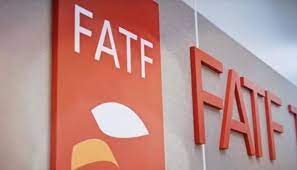Paris August 24 2022: Pakistan will remain in enhanced follow-up stated Asia Pacific Group on Money Laundering 4th Follow up Report on Mutual Evaluation of Pakistan.
Pakistan’s next progress report is due 1 February 2023, the report stated.
Overall, Pakistan has made good progress in addressing the technical compliance deficiencies identified in its MER and has been re-rated to Compliant on one recommendation, Largely Compliant on two recommendations and Partially Compliant one. Pakistan has 38 Recommendations rated Compliant or Largely Compliant out of 40.
Pakistan was rated Not Compliant in its MER on recommendation number 38 related to Mutual Legal Assistance (MLA). The October 2020 FUR found that Pakistan had made positive steps in enacting the MLA Act (MLAA) and establishing MLA processes, however procedures had not been developed to support timely handling of requests. There were limitations with respect to non-conviction based orders. The 2020 FUR found that major deficiencies with restrictive conditions introduced in the MLAA, including the requirement that the subject of any request to restrain or confiscate assets be notified of that request before the action can be taken, which prevents Pakistan from maintaining the confidentiality of requests and undermines its ability to act expeditiously. This deficiency was given significant weight.
Since the October 2020 FUR, Pakistan has amended the MLAA to remove the major deficiency identified with unduly restrictive condition regarding the requirement of notification to the subject of MLA requests. The further amendments to the MLAA allow for assistance on the basis of non-conviction based confiscation proceedings. Pakistan has also issued MLA Guidelines to all implementing agencies to support the expeditious MLA process. There are however deficiencies in the scheme for providing assistance to obtain restraint orders ex parte in all circumstances. While the MLAA covers some circumstance where restraint orders can operate ex parte, there are circumstances where restraint orders can only be obtained with notice and another circumstance where the MLAA is unclear. These deficiencies with restraint are particularly problematic as ex parte restraint is a crucial practical step to properly support with-notice confiscation processes, hence more weighting has been assigned to this deficiency










